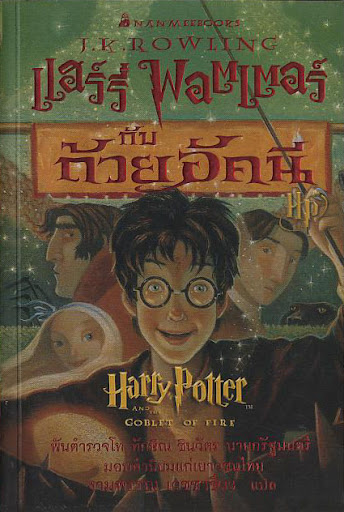There are a number of books and book series that follow a similar format: short chapters, each one devoted to a single Thai word or small set of words. I'm talking about these books that discuss the origin and usage of Thai words.
Many are compiled from other media into book form (radio or tv shows, newspaper or magazine columns). I have a whole slew of books like these. And a lot of the material can be had for free online. Notable series include:
 ภาษาไทย ๕ นาที
ภาษาไทย ๕ นาที by
จำนงค์ ทองประเสริฐThe title means '5 Minutes of Thai Language'. This series is up to volume 9 now. I own 3 and 5, I believe. They consist of transcripts from Prof. Chamnong's long-running five-minute radio show of the same name. I'm not sure if it's still on the air, but I don't think so.
A fellow of the Royal Institute who has held pretty much every position of leadership in that organization over the years. The good professor is in his seventies, but still active at the Royal Institute, as far as I know. I interviewed him for my senior thesis back in 2005.
About 150 transcripts are freely available
on Prof. Chamnong's website (note: that link goes to page 1 of 3, so be sure not to miss the full set of available articles). I believe this represents the full contents of vol. 3, possibly more.
 ภาษาไทยวันละึคำ
ภาษาไทยวันละึคำ by
กาญจนา นาคสกุล "Thai language, A Word a Day" was a recurring five-minute television spot which ran for several years in the early 90s, I believe. Transcripts from each broadcast year have been published, as you can see from this book cover here. Last year a hardcover compendium called
ภาษาไทยวันละคำ ฉบับรวมเล่ม was released, compiling the show's entire run into one big (800+ page), alphabetized volume.
Dr. Karnchana is also a fellow of the Royal Institute. When I interviewed her in 2005, she was one of the two vice-presidents of the Royal Institute. Her term of service in that position may be up by now, but she's still active in the Royal Institute, and was in the news last year for spearheading the พจนานุกรมคำใหม่ 'Dictionary of New Words' project at the Royal Institute.
She also has a semi-regular column called ภาษาไทยวันนี้ 'Thai Language Today' in the weekly magazine สกุลไทย that has run since 2000. You can access the archives on
Sakulthai.com, totaling nearly 200 columns.
 ภาษาไทยวันนี้
ภาษาไทยวันนี้ by
สมพร จารุนัฏAlthough it shares a name with Dr. Karnchana's column, I don't think there is any relation with this series of books published by the Ministry of Education.
The MOE
has a website (unfortunately offline right now) on which you can view and download hundreds of their textbooks in PDF format for free, these books included, among dozens of other Thai-language textbooks ranging from grade 1 through grade 12. This is the first time I've tried to visit the site in a while, so hopefully it's not offline permanently. Excellent little website with more free books than you can shake a stick at.
There are other series and other individual volumes. ภาษาไทยนอกจอ, ภาษาคาใจ (3 volumes), ภาษาไทยไขขาน (half a dozen or more, I think--also by Dr. Chamnong), others. I'm also a fan of the column มองไทยใหม่ 'A New Look at Thai' by นิตยา กาญจนะวรรณ, which runs weekly in มติชนสุดสปัดาห์ (Matichon Weekend). Several compilations of Dr. Nitaya's articles have been published but are now out of print. You used to be able to get all of the back-issues of her column for free on Matichon's website, but now you have to be a paying customer (not to paying customers: read her column).
One of the Royal Institute's present initiatives to "improve" the public's use of the Thai language is a radio show called รู้ รัก ภาษาไทย 'Know and Love the Thai Language'. Transcripts are regularly updated on their website
here. You can also check out other compiled articles on language (among other topics) on
this page of their site. Many of these were written by Prof. Chamong and Dr. Karnchana, so there may be some overlap with other books. I've never checked. But there are hundreds of articles to peruse.
There's a ton of material out there, and much of it free. If you know of any other resources, online or book, please post a comment or drop me an email (my address is at the bottom of the blog).



















